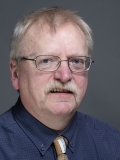- Prospective Applicants
-
Current PhD Researchers
- Careers and Opportunities
- Careers
- Go Global
- Science Shop
-
Supervisors
- Find a PhD
- PhD Manager
Awake craniotomy (AC) with direct electrical stimulation has become established as the “gold standard” approach for resection of gliomas in eloquent locations of the brain [1]. Language assessment is critical throughout: it can identify preoperative deficits, rapidly detect the occurrence of new intra-operative impairments, direct the surgical plan and ascertain postoperative function [2]. Participation of a language specialist working in AC may result in higher rates of gross tumour resection, shorten the duration of surgery with potential for better patient outcomes [3]. However, there is ambiguity regarding the role of multidisciplinary practitioners involved in language mapping during AC [3].
This uncertainty extends to a lack of consistency regarding language mapping, testing used, intra operative roles, responsibilities and the resultant impact on service user outcomes. Exploration of the unique speech, language, cognitive communication and psychological needs of the patient is essential to inform practice guidance. This proposal is an extension of previous survey work, exploring AC practice across the UK.
Aim: To understand the unique contribution of language mapping on outcomes of people with brain tumors, undergoing awake craniotomy.
Objectives: 1.To conduct secondary data analysis to improve the identification of the unique care needs of patients undergoing AC: pre, intra and post operatively; 2.To explore language mapping specialists’ perceptions of their role and practices in AC; 3.To explore the service user and family caregiver’s perspective and experiences; 4.To examine the knowledge, beliefs and attitudes of AC MDT members towards the evolving SLT role in AC. 5.To make recommendations that will inform the development of AC.
Methodology: This is a unique opportunity to learn and apply a range of methods, as follows:
Phase One: Secondary data analysis: AC service user information will be obtained from a clinical center of excellence in the UK for all AC performed within the previous year. This will provide a baseline of language mapping practices and identify speech, Ianguage, cognitive communication and psychological care needs of AC service users alongside identification of key outcomes.
Phase Two: Focus groups with a purposive sample of MDT language mapping practitioners: This will explore experiences, current practices including role extension, barriers and facilitators.
Phase Three: Interviews with a purposive sample of service users and family caregivers: This will be undertaken to explore the perceptions and experiences of service users and their carer’s with particular focus on speech, language, cognitive communication and psychological needs. Participants will be recruited from the same UK center of surgical excellence.
Phase Four: A cross sectional email survey of UK neurosurgeons and key MDT members: a UK wide survey (Qualtrics) will be sent to all AC MDT team members to evaluate their perception of their role and practices across the UK.
Applicants should hold, or expect to obtain, a First or Upper Second Class Honours Degree in a subject relevant to the proposed area of study.
We may also consider applications from those who hold equivalent qualifications, for example, a Lower Second Class Honours Degree plus a Master’s Degree with Distinction.
In exceptional circumstances, the University may consider a portfolio of evidence from applicants who have appropriate professional experience which is equivalent to the learning outcomes of an Honours degree in lieu of academic qualifications.
If the University receives a large number of applicants for the project, the following desirable criteria may be applied to shortlist applicants for interview.
The University offers the following levels of support:
The following scholarship options are available to applicants worldwide:
These scholarships will cover full-time PhD tuition fees for three years (subject to satisfactory academic performance) and will provide a £900 per annum research training support grant (RTSG) to help support the PhD researcher.
Applicants who already hold a doctoral degree or who have been registered on a programme of research leading to the award of a doctoral degree on a full-time basis for more than one year (or part-time equivalent) are NOT eligible to apply for an award.
Please note: you will automatically be entered into the competition for the Full Award, unless you state otherwise in your application.
The scholarship will cover tuition fees at the Home rate and a maintenance allowance of £19,000 (tbc) per annum for three years (subject to satisfactory academic performance).
This scholarship also comes with £900 per annum for three years as a research training support grant (RTSG) allocation to help support the PhD researcher.
Due consideration should be given to financing your studies. Further information on cost of living
Submission deadline
Monday 18 February 2019
12:00AM
Interview Date
Mid March 2019
Preferred student start date
September 2019

Telephone
Contact by phone
Email
Contact by email